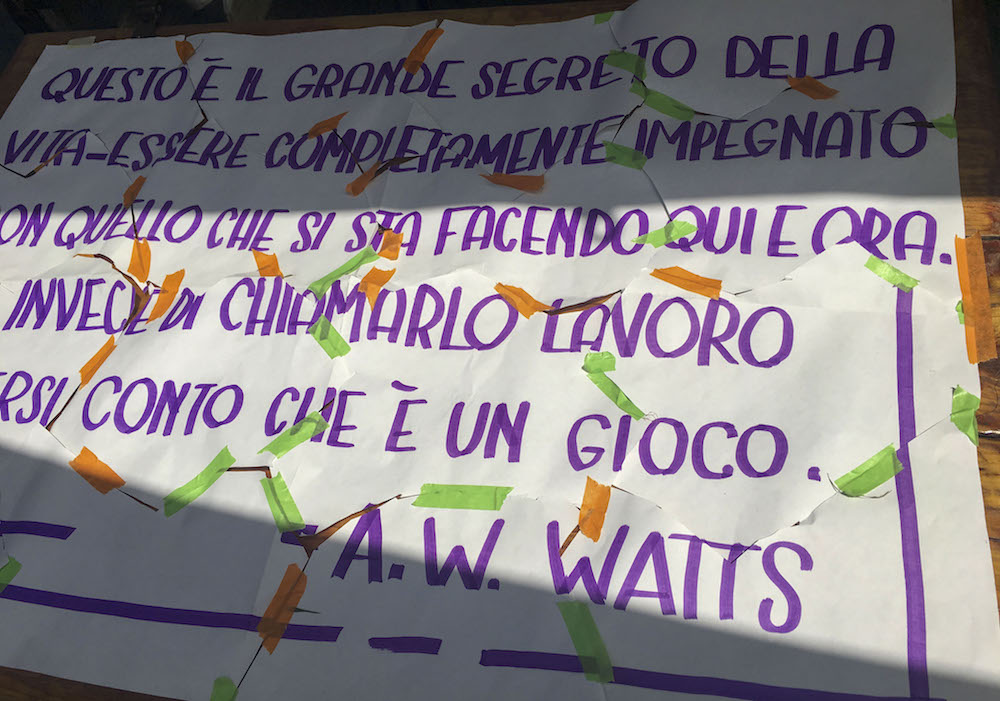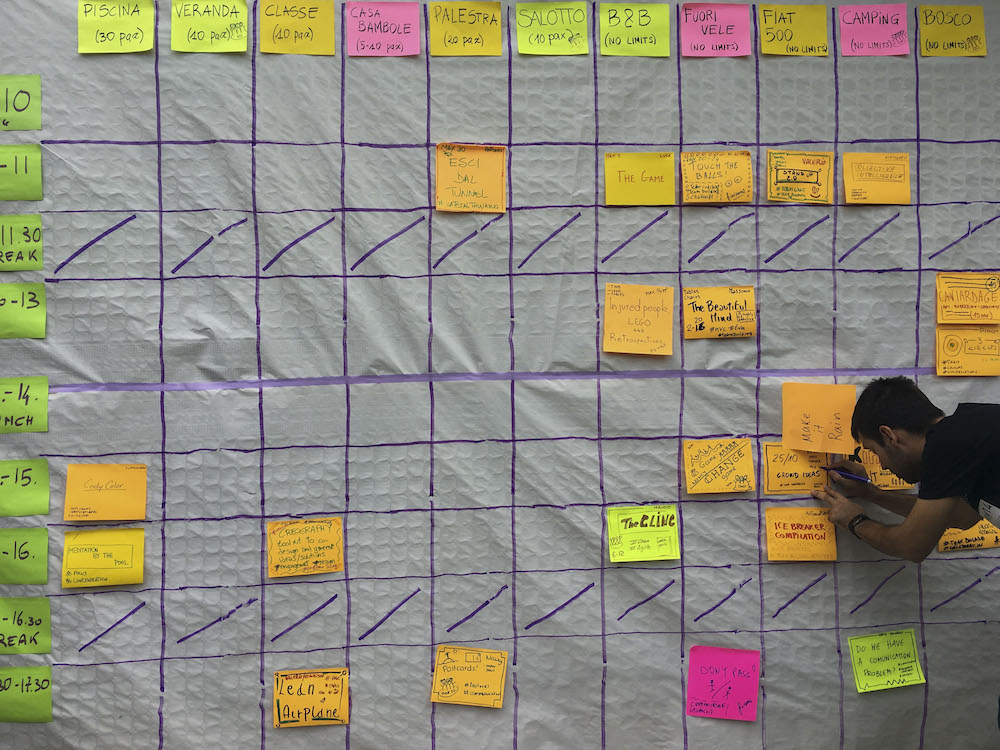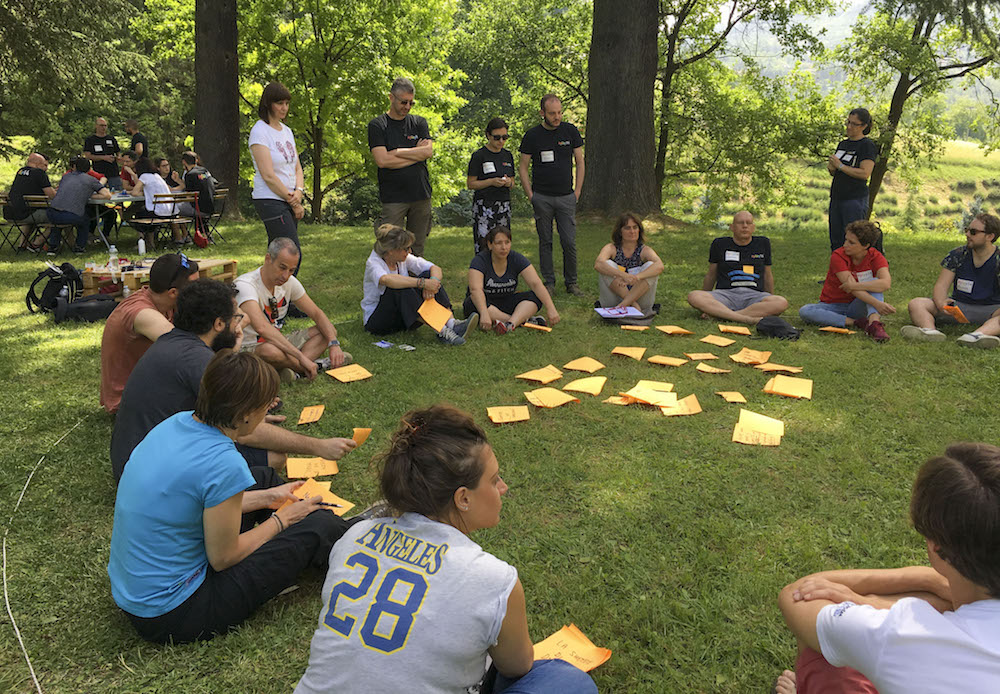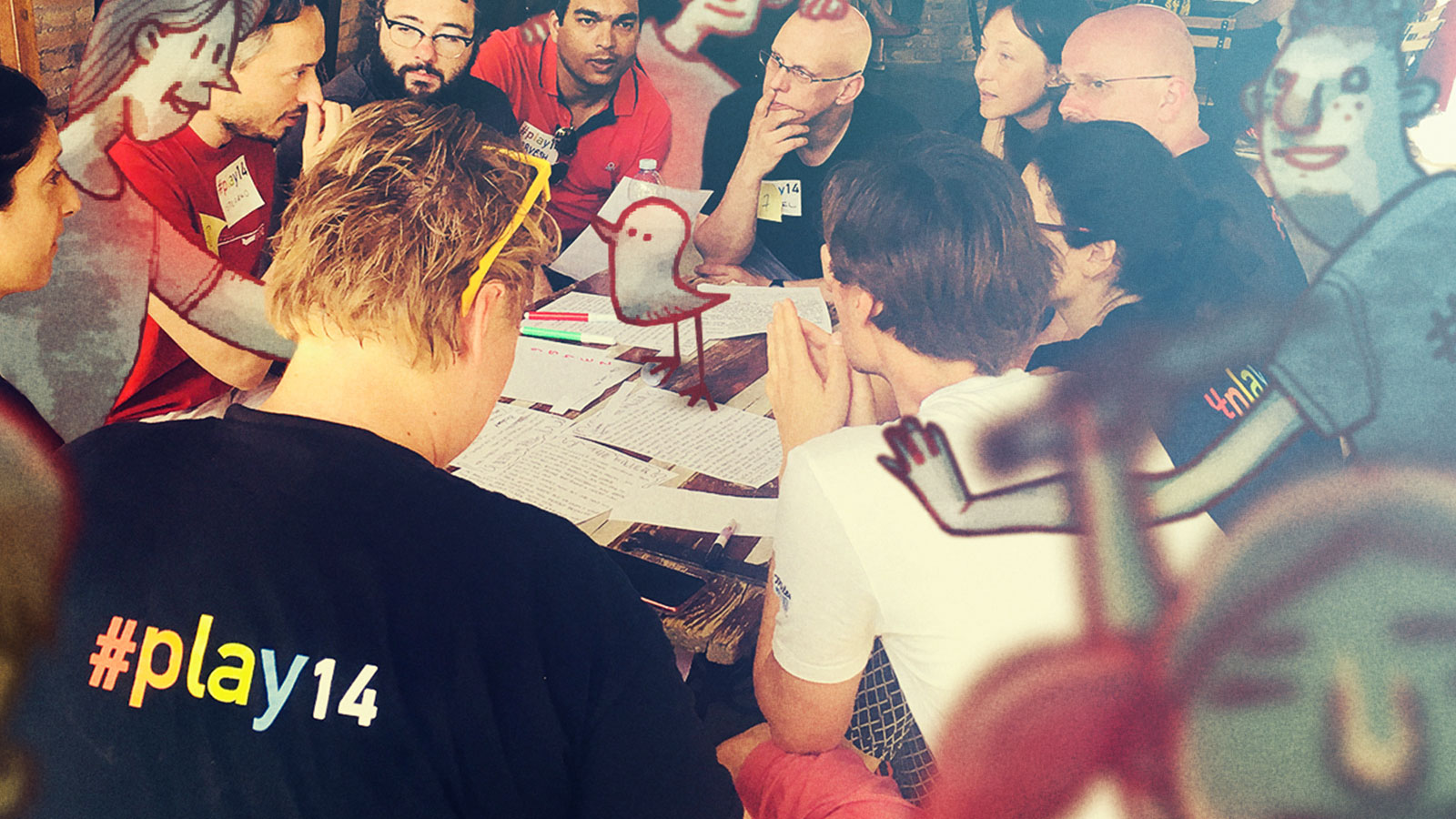Game as a learning tool: relationships and agile culture
We have already talked in our blog about the crisis of the “formalist” paradigm at the base of organisations which comes from the enormous social transformations that are now taking place. We also discussed about the increasing need of innovation and flexibility as an answer to the sudden market changes.
Many words have already been spent to describe how Interlogica has embraced transformation moving from a vertical organisational model (clear hierarchies, tasks and processes rigidly predefined and little or no intercommunication amongst teams and departments) to a horizontal model with a spread leadership instead. This is a social ecosystem in which everyone is aware of the entire system and is energised in letting their potential emerge. Employees can therefore experiment, take on responsibilities whilst making autonomous choices to promptly answer inputs and feedback received.
In such a context, the centre of the business organization are the relationships amongst human beings and the more these are developed constructively, the more people feel encouraged in developing their own potential whilst bringing real value to the company and its clients.
These are just some of the reasons why we decided to make the Agile culture one of the main pillars of our internal processes and to adopt the relevant framework – Scrum, Kanban, etc – to discipline the workflow of teams on goals to reach, instead of waiting for assignments to be completed.

Difficulties are around the corner… the right tools are needed to face them
This is something we have already talked about but we have never mentioned the complexity of such itinerary and all the difficulties that have to be faced when such a decision is made.
Well, now it’s the right time!
The obstacles are around every single corner: something that might appear easy can actually become very difficult to solve.
This is a process and, like every other one, mistakes are important for making you learn. You need to have the right knowledge when you start moving your first steps towards change. This will help you in not getting stuck in the mud of chaos whilst avoiding being tied to the impossibility of really implementing a change.
It becomes therefore fundamental to have the right tools to embrace the change and start moving towards new organizational structures.
One of the main objectives of our Agile MeetUps is to help divulging such tools. We invite Coach and Agile experts to share and talk about their knowledge and experience with us.
During one of such MeetUps we met the Coaches of Agile Reloaded who hosted #MiniPlay14, a tiny taste of the real event. #Play14 is a tool through which gaming facilitates the use of agile practices and supports the migration towards a new culture.
Learning whilst playing – #Play14
“Playing is a serious business. It’s an activity which gives pleasure and, from the philosophical perspective is a channel to reach freedom and the expression of fantasy. This is the reason why playing is becoming more and more a tool to teach, learn and understand.
#Play14 is a two-day unconference about serious gaming in which gaming is seen as a tool for team building, retrospective analysis, modelling, problem solving and more. From its very first edition, the objective of the conference was bringing out personal experiences and knowledge about using different gaming techniques through which fundamental concepts of Agile could be learnt – going through working in teams and collaboration
During the conference, which is set in a very informal, funny and stimulating environment, participants can experiment different cases about management, coaching, working team management, problem analysis and much more.”
Since the format is the one of an “unconference” the programme is decided directly by the attendees. Marketplace is the initial moment of the day during which everyone can suggest some games inside a defined slot of time and space: the type of game, who is it for and the quality of learning that it endorses.
After that, with the guidance of Coaches or Trainers who suggested the game, attendees are divided into teams and they start playing.

“Let the games begin!”
From icebreakers to games about how to build trust, from sitting games to logic or physical ones, there are games for everyone and for every need.
Personally, the first one I took part in was about storytelling. A game developed through gradual iterations, becoming more and more difficult, which enhanced the constant improvement of the quality of the participation. It helps sharpening the team collaboration abilities making sure the different personalities of team members emerge in different spaces and times. It also promotes the talents each ones of us has, making sure everyone is reached, inside and outside their teams.
Its fundamental moment is the restitution phase from the person overseeing the game who highlights all the dynamics emerged and makes everyone aware of what has been just experimented.
Another important moment is the one dedicated to a game of cards. Basically, a challenge built on the ability of communicating and listening within a group. Those are elements which help understanding who the dominant personalities are, whilst making the more shy ones stand out too. At a certain moment cards need to be shown and checked if the goal has been reached. It is very easy to observe that the only mistakes made are related just to the only person who didn’t really want to play.
Thinking about a funny moment, it was surely the olympics. Everyone attending #Play14 was asked to take part in a comprehensive challenge with very big teams: there were time challenges, physical challenges, others about learning and team collaboration, relational logic, etc.
It would be impossible to describe them all, and not very useful. My suggestion is to absolutely take part in them!

If we try to translate what happened during the games into complex situations, such as the creation of a new team or presenting some sprint results to a client – moments where the functional integration of all the components of a group helps in having great results – the dynamics are enlightened by a new light and they then become useful tools for understanding and improvement.
For example, using gaming as a way to build cohesion and trust in the working team gives more participation and involvement in a shorter time.
The double value of gaming
Gaming has basically a double value:
- for those taking part in it, since it indirectly works on building trusted relations and on the understanding of fundamental principles needed for team working such as collaboration or the ability of having a productive dialogue.
- for those managing the game – a Coach, usually – as through the game he/she can collect a lot of info about the people he/she is interacting with (for example shy personalities which are difficult to identify without the expedient of the game) and who becomes the starting point for the following trainings.
In other contexts it is quite difficult to let concepts such as the importance of listening, emerge. Similarly, it is very delicate to break the ice in new situations; it’s hard to work on biases, on evaluation criteria or even about being able to give emotionally intense feedback, etc.
There are tons of situations which imply a constant individual effort. Team work obliges people to do a bit of soul’s searching and the subjectivities and personalities of members can actually become bigger obstacle than the ones given by professional competencies.
In the HR sector, Soft Skills are considered more and more important. These are all those abilities which fall outside the technical competence and belong more to the personality domain. Some examples of such skills could be the ability of listening, how easily someone can adapt, how collaborative someone is or how proactive, etc.
Gaming as a tool across the board
Gaming is becoming a very useful tool to work in a transverse way for building healthy working relationships which are also competitive. True, it is a lighter and funnier way of learning but definitely not less important.
It is actually because of its being light and funny that playing actually seeps through dynamics amongst people and it allows complex situations emerge in a fast way. It also provides the cognitive tools and the right info needed to face them.
Since 2014, where the first unconference took place in Luxembourg, #Play14 rapidly expanded throughout Europe. This tells an amazing story about the effectiveness of its lessons.
We are now living in a historical moment of massive changes: every single day there are revolutionary innovations taking place. Paths never explore before are being discovered. The use of gaming in companies as a tool for learning is definitely an unconventional way of doing things but absolutely effective.
You might also like:
#Miniplay14 – Serious gaming at Agile Venezia Meetup
How to be a business superhero in 3 days
Confessions of an Agile budding marketer



